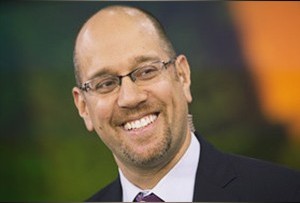In theory, the price of shares across the stock market is a reflection of economic health. If stocks are up, business is thriving— or so we thought…
Recent market volatility is showing some tell-tale signs that it is not grounded by a sturdy economy, which leaves the fear that it can free fall at any moment.
What most of us know about the stock market is that we don’t know enough.
On the surface, we are led to believe that a rising stock market is a direct result of business growth and company profits increasing. However, that is far from the truth. The very nature of the stock market works off of speculation. Stocks are bought in anticipation of growth, not as a result of growth. All prices move based off of what investors are hoping for, without any guarantee. Simply put— even for the professionals on Wall Street, securities investing is just a complex form of gambling.
The average person saving for retirement doesn’t have the time to understand the complexity of the stock market, and often leaves that responsibility up to the financial services industry. That is why this industry is successful in any economic climate; it profits from placing bets with other people’s money. Win or lose, the financial services industry cashes in while the investors assume all the risk of the gamble.
Because the stock market runs entirely off of speculation, it is often taken off track from reality. This stray from reality can take place in one of two ways.
The first way the stock market can become an illusion is by design. This is something we see each week as investment managers are continuously brought to court to face charges of misleading investors and insider trading. If someone who lacks moral integrity comes into a position of power on Wall Street, they can very easily use their know-how and their reputation to sway speculation of the markets in a direction that favors them. While specific stock prices may rise because a certain “expert” is recommending the stock, it does not measure the health of the actual company supporting that stock. When reality checks in, shareholders of that stock are left paying the price while the corrupt insiders on Wall Street cash in.
The second way the stock market becomes an illusion is by mass ignorance, and this can be even more dangerous. The stock market’s gains and losses come from the accuracy of speculation investors make on the economy. When something takes place that is large enough to shift the perspective of the masses, it creates a very risky situation.
For example, at the turn of the century the investment world dove head first into the tech industry as the Dot Com craze had everyone thinking the internet was the next gold rush. The aftermath of the mass flood of the Dot Com investments showed that the high stock prices of 2000 were simply… wrong. It happened again in 2008 after the housing bubble crashed the markets yet another time, showing it is very possible for the stock market to be taken far away from the support of the real economy.
Could we be seeing an illusion on the market today?
The stock market has recently shown volatility in the form of sharp declines immediately following any news that suggests the economy is not as strong as the markets would lead you to believe. This pattern of market plunges following economic news shows that Investors have one foot out of the car, ready to jump before the crash— a strong suggestion that the current stock market highs may be an illusion.
Investing all of your assets in the securities industry is like walking on a pond of ice. It may look strong at times, but at any given step the ice might break and suddenly you realize that you were weighing too heavily on the illusion of a solid grounding.















